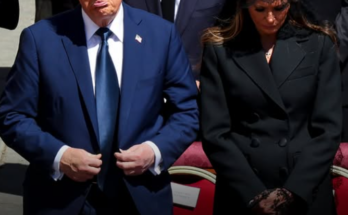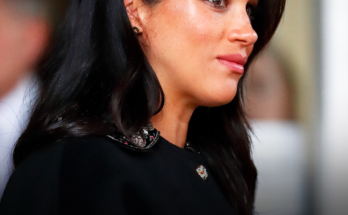In a rare public appearance on Capitol Hill, First Lady Melania Trump advocated for the swift passage of the “Take It Down Act,” a bipartisan bill aimed at criminalizing the non-consensual sharing of intimate images, including those generated by artificial intelligence (AI), commonly referred to as “deepfakes.” This initiative aligns with her ongoing commitment to promoting online safety, particularly for young people.
Melania Trump’s Advocacy
Addressing a congressional roundtable, Mrs. Trump expressed deep concern over the detrimental effects of malicious online content on teenagers, especially young girls. She described it as “heartbreaking” to witness youths grappling with the challenges posed by such content and emphasized the urgency of creating safer digital environments.
Highlighting the case of 15-year-old Elliston Berry, who was victimized by AI-generated explicit imagery, the First Lady underscored the real and pressing nature of this issue. Berry’s experience, where her likeness was superimposed onto pornographic content without her consent, exemplifies the profound harm that can result from the misuse of technology.
Key Provisions of the “Take It Down Act”
The proposed legislation seeks to address the escalating problem of non-consensual intimate imagery (NCII) by:
-
Criminalizing the Publication of NCII: Making it a federal offense to knowingly share intimate images without the subject’s consent, encompassing both genuine and AI-generated content.
-
Mandating Swift Removal: Requiring social media platforms and websites to establish procedures to remove such content within 48 hours upon notification from victims.
-
Implementing Preventative Measures: Obligating platforms to take steps to prevent the reappearance of removed content, thereby offering sustained protection to victims.
Bipartisan Support and Legislative Progress
The “Take It Down Act” has garnered bipartisan backing, with Senators Ted Cruz (R-Texas) and Amy Klobuchar (D-Minnesota) leading the initiative. The Senate unanimously passed the bill in February 2025, reflecting a unified stance against the proliferation of NCII.
Senator Cruz acknowledged the significance of Mrs. Trump’s support, stating that her advocacy could be pivotal in expediting the bill’s passage through the House of Representatives and its eventual enactment into law.
Addressing Partisan Dynamics
During her address, Mrs. Trump expressed disappointment over the limited attendance of Democratic lawmakers at the roundtable, urging leaders to prioritize the welfare of America’s youth over partisan divisions. She emphasized the necessity of collaborative efforts to ensure the safety and well-being of children in the digital realm.
Continuation of the “Be Best” Initiative
This advocacy aligns with Mrs. Trump’s “Be Best” campaign, launched during President Donald Trump’s first term, which focuses on youth well-being, including online safety. Her recent efforts signal a renewed dedication to combating digital threats that jeopardize the mental and emotional health of young individuals.
Implications for Technology Companies
The act places significant responsibility on technology companies, mandating the swift removal of NCII and the implementation of measures to prevent its recurrence. Meta, the parent company of Facebook and Instagram, has expressed support for the legislation, indicating a willingness within the tech industry to collaborate in addressing this pervasive issue.
Broader Context and Challenges
The rise of AI technology has exacerbated concerns surrounding deepfake pornography, where realistic but fabricated explicit content is created without individuals’ consent. This not only infringes on personal privacy but also poses significant psychological harm to victims.
Critics caution that while the bill aims to protect victims, it must be carefully crafted to avoid potential infringements on user privacy and freedom of expression. Ensuring that the legislation does not lead to unconstitutional censorship remains a critical consideration as it progresses through Congress.
Conclusion
Melania Trump’s advocacy for the “Take It Down Act” underscores a concerted effort to address the pressing issue of non-consensual intimate imagery in the digital age. Her involvement brings heightened attention to the need for robust legal frameworks that protect individuals, particularly vulnerable youth, from the malicious misuse of technology. As the bill moves through the legislative process, it represents a pivotal step toward fostering a safer and more respectful online environment.


